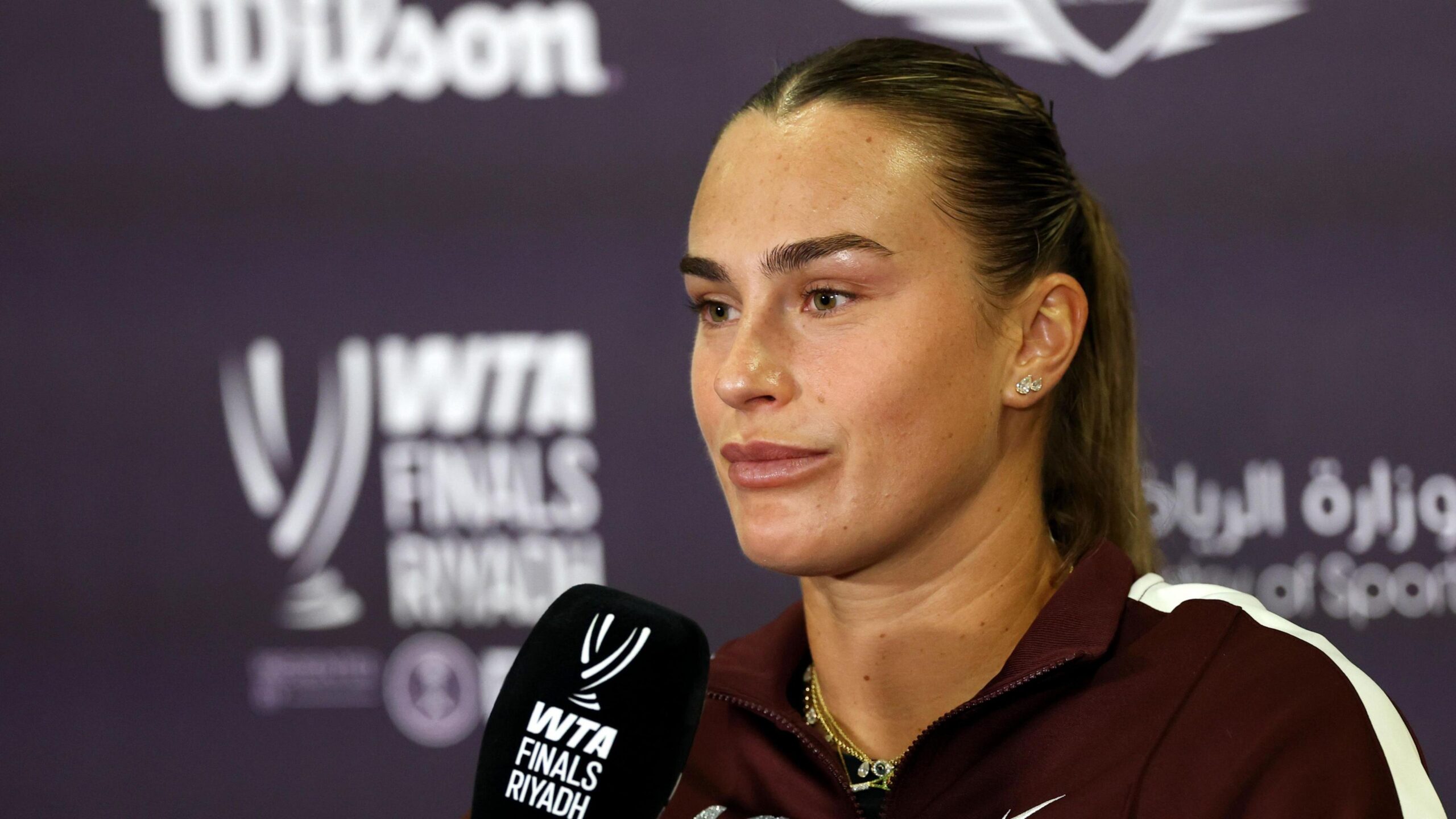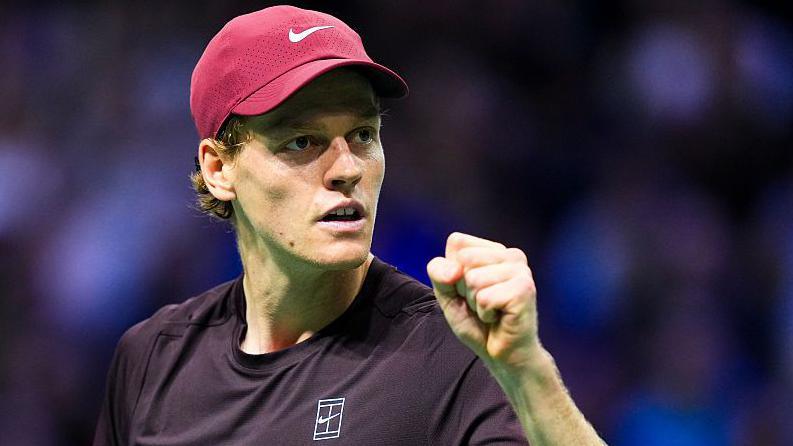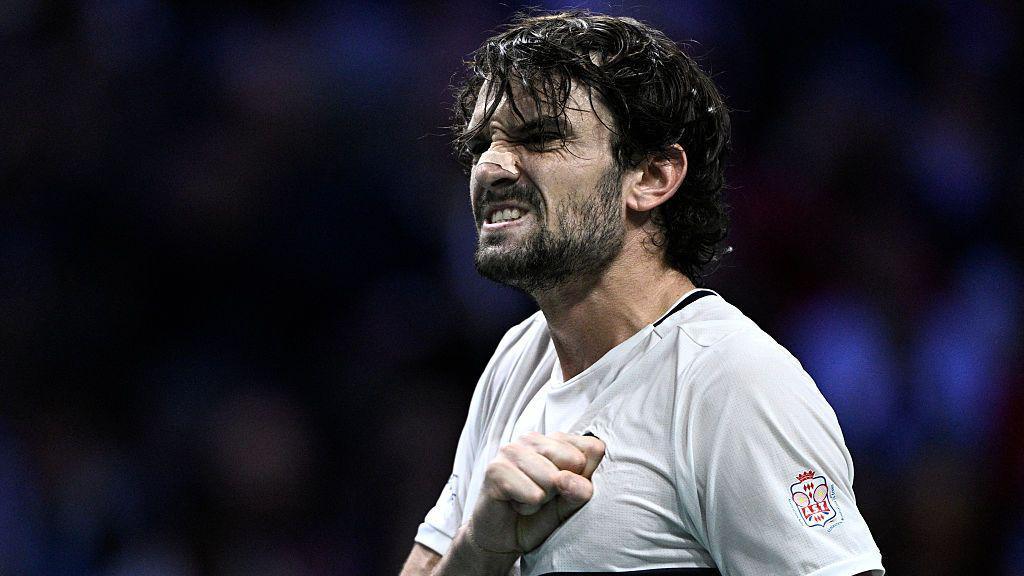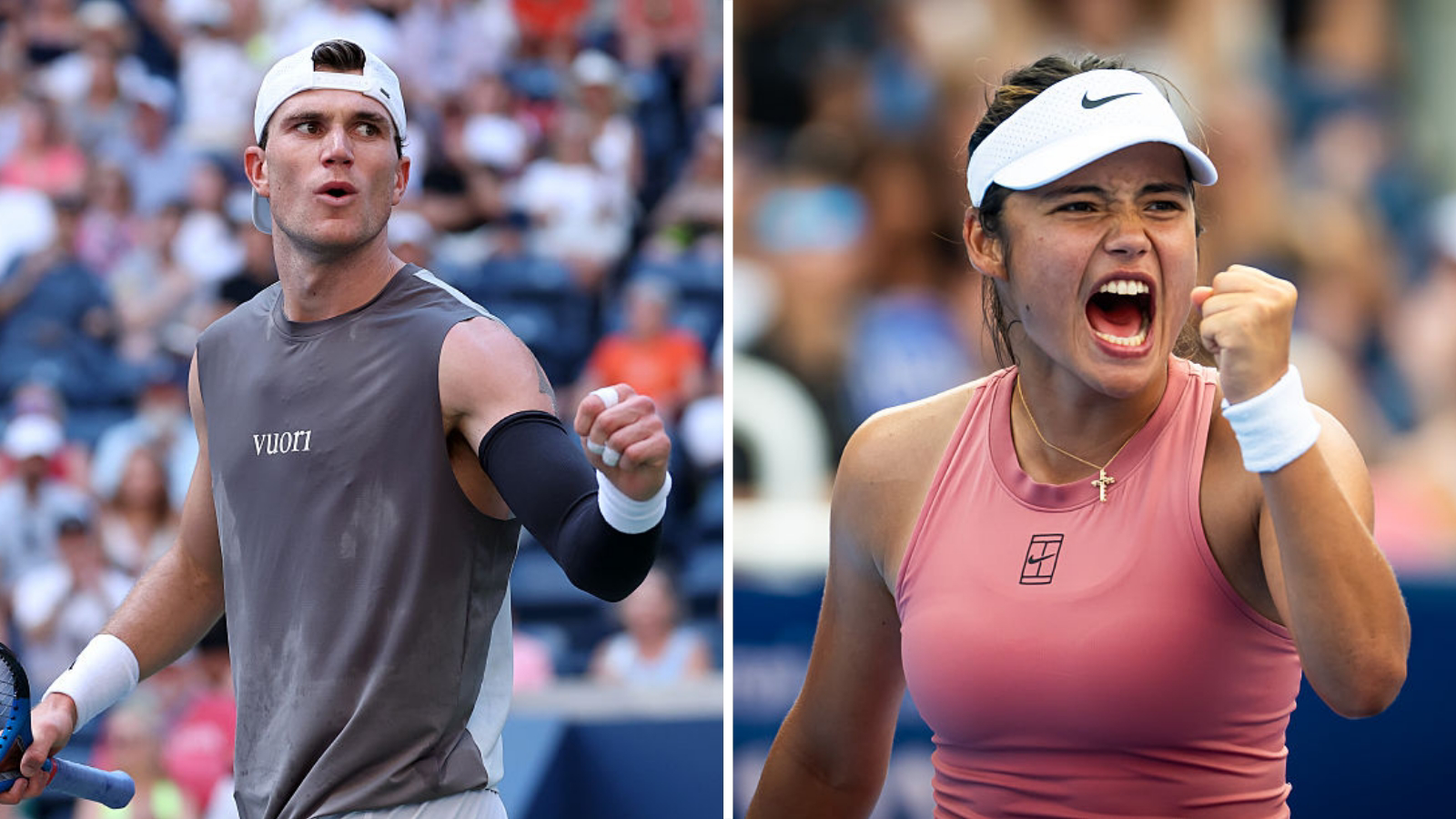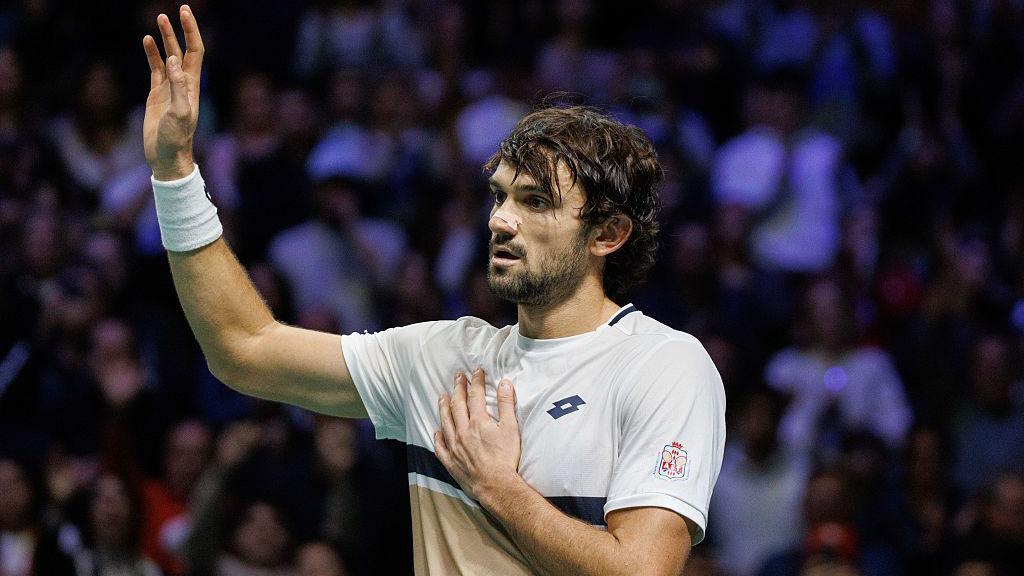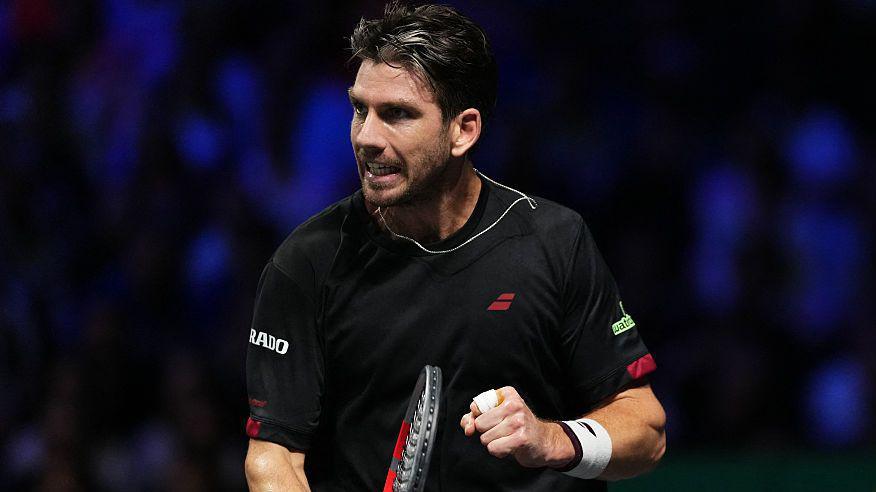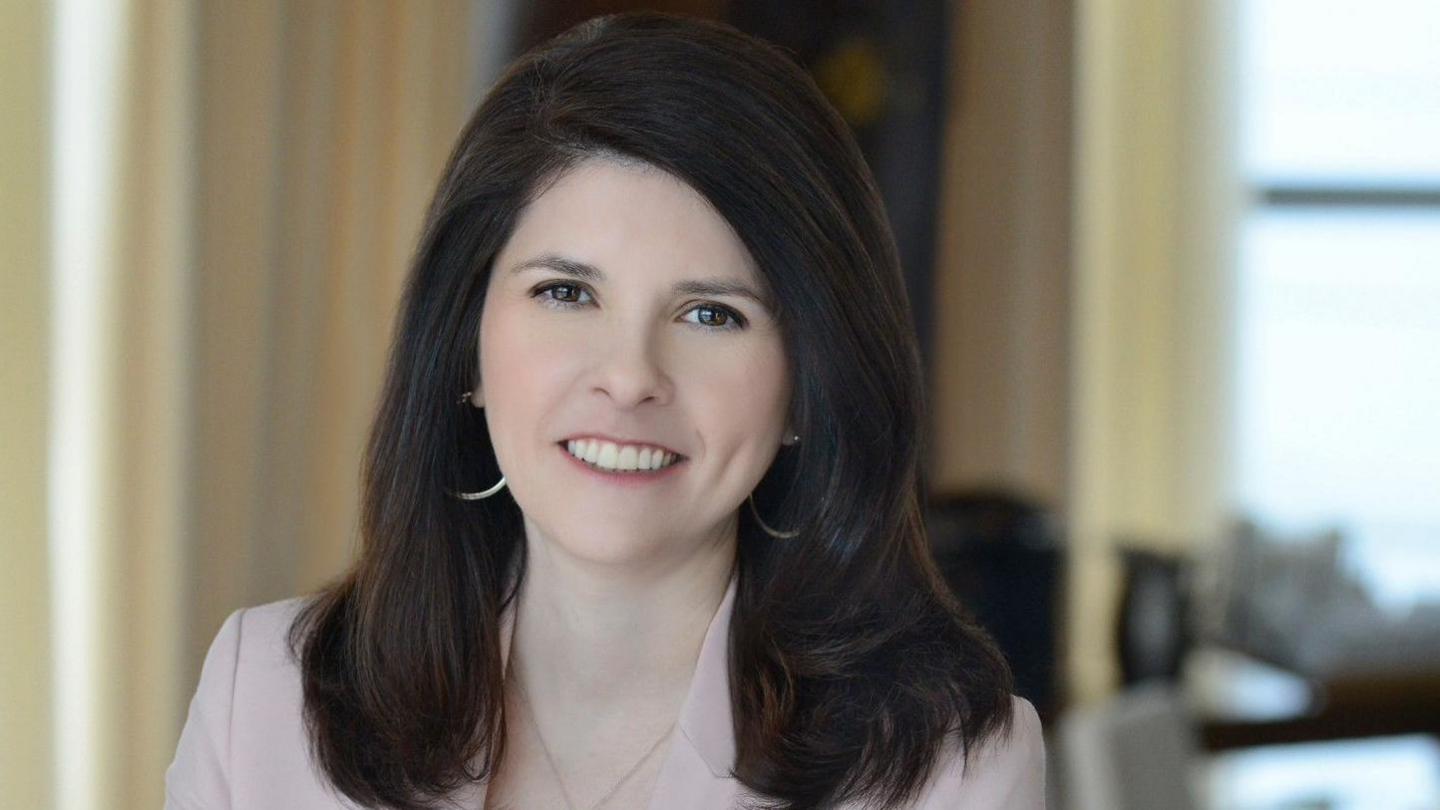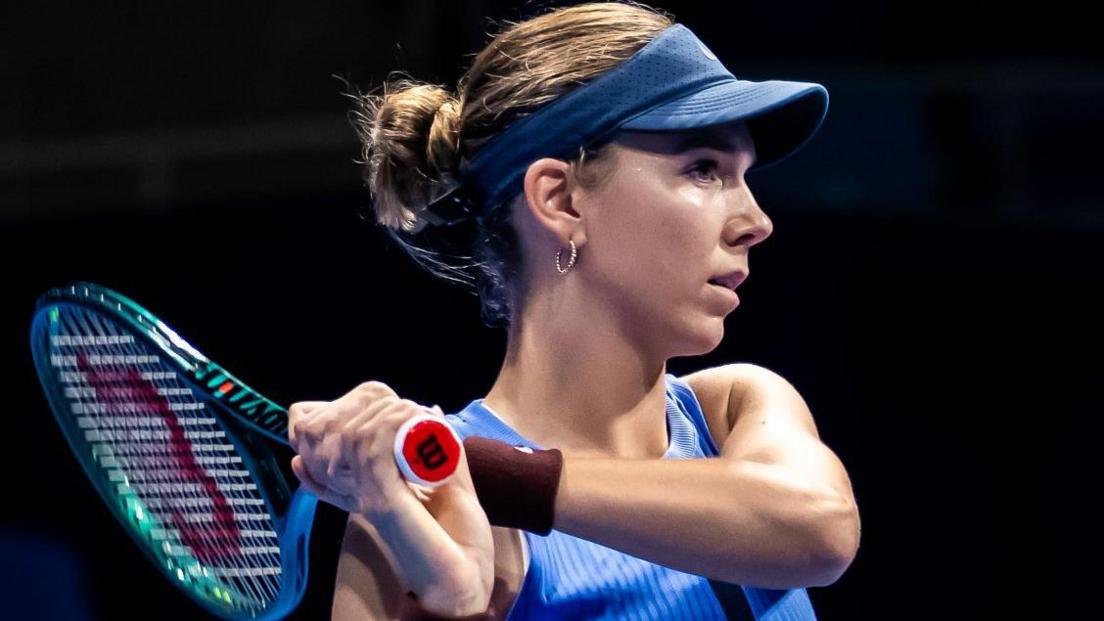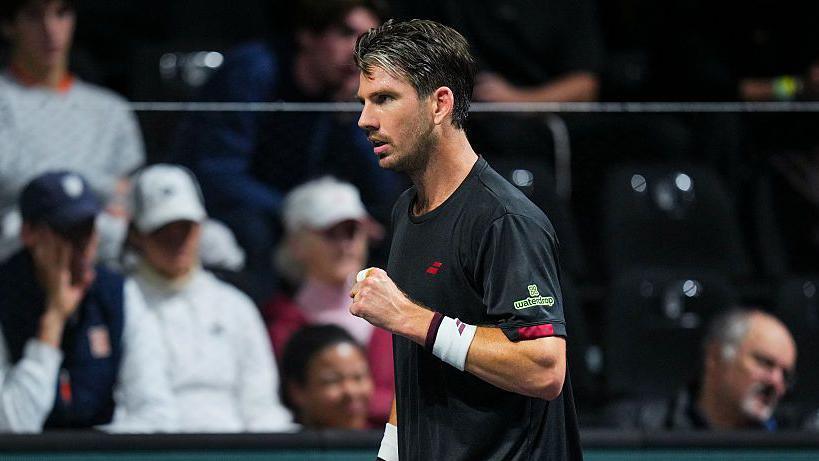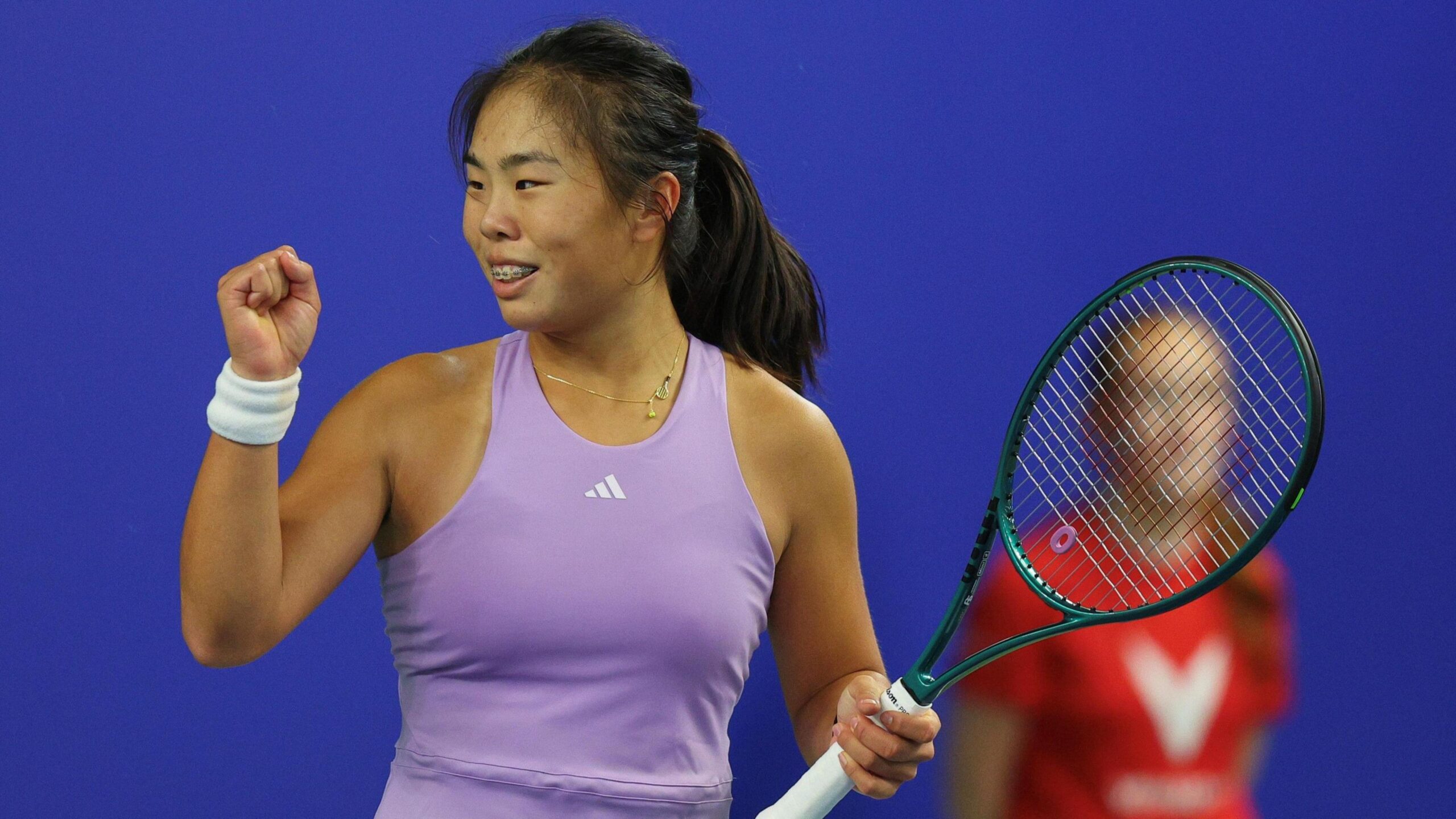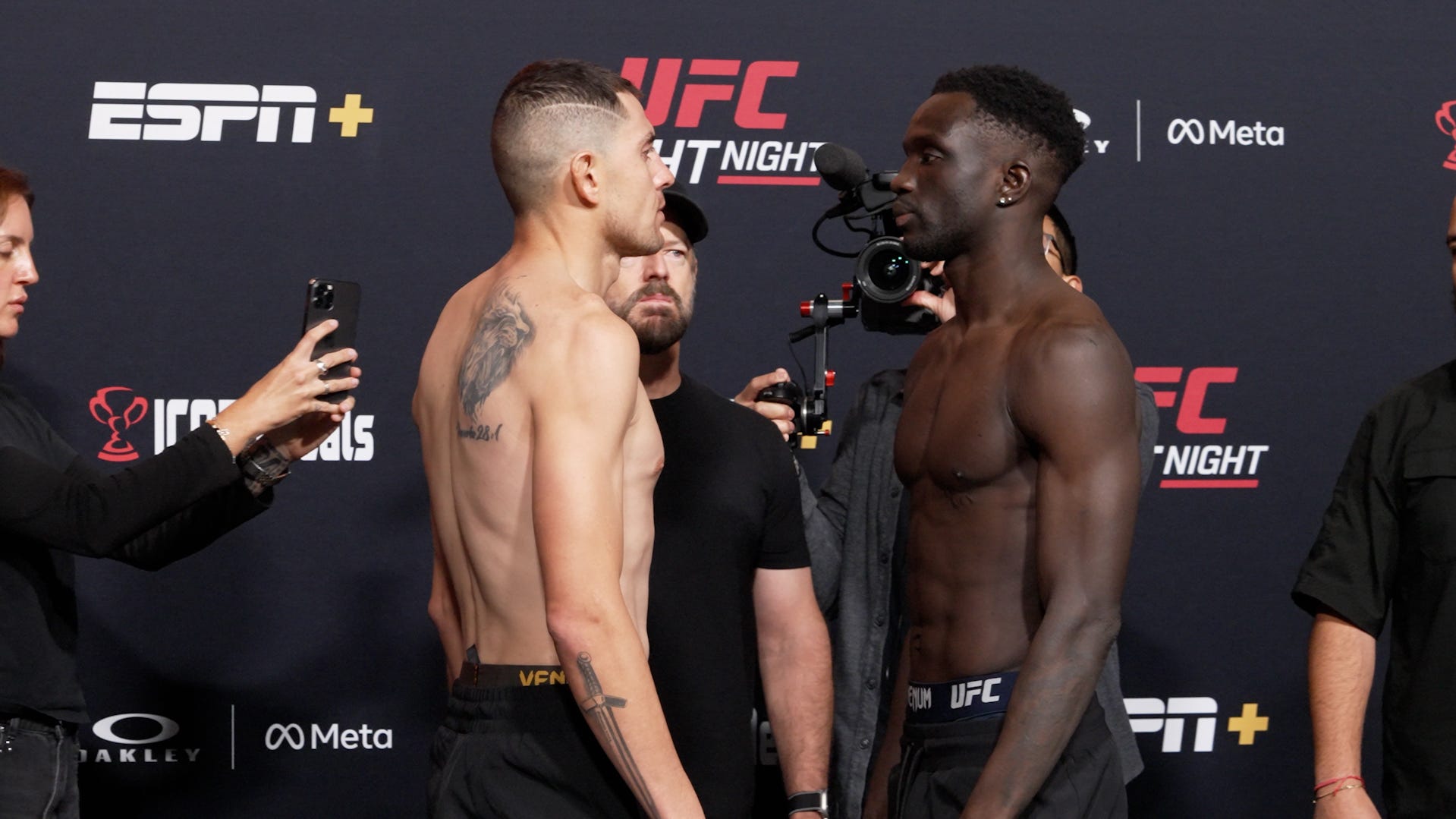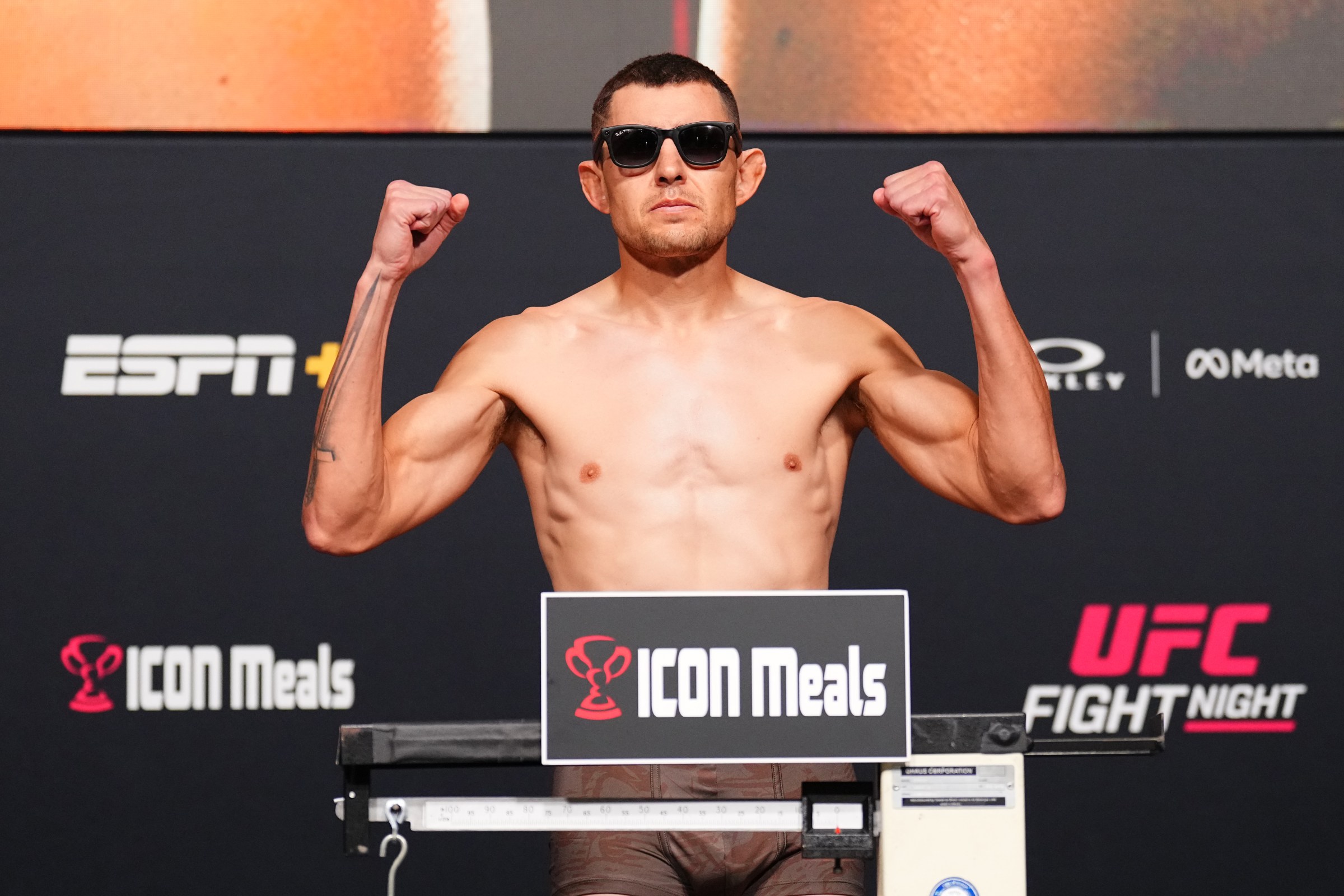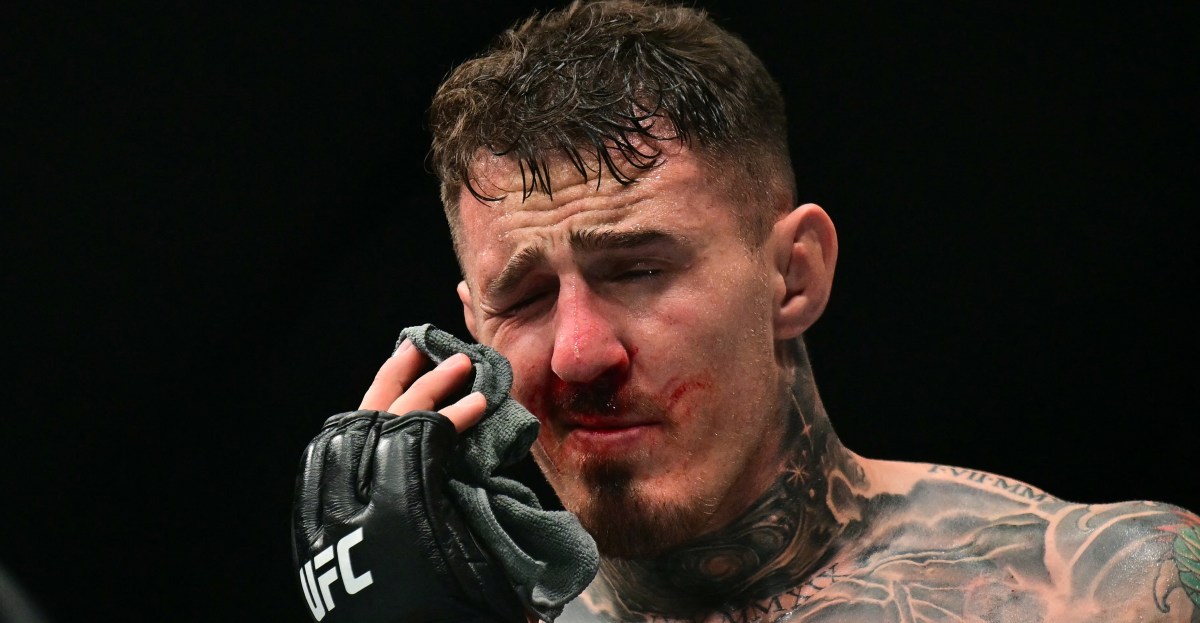-
35 minutes ago
World number one Aryna Sabalenka has asked the Grand Slams to “come to the table” as the leading stars ramp up the pressure over their calls for increased prize money and greater player welfare.
Sabalenka is among the top 20 men’s and women’s players who have asked the four majors – Wimbledon, the Australian Open, the French Open and the US Open – for the whole field to receive a larger share of the revenue generated by tournaments.
The group of players also want a promise that meaningful change to the structure of the tournaments and support provided by the Slams – to protect their physical and mental health – will be implemented.
The Grand Slams insist they remain open to constructive dialogue about the sport’s future. They have also strongly defended what they already offer the players in terms of prize money and state-of-the-art facilities.
“The Slams are the top of our sport. I would just ask that they come to the table to have a conversation and see if we can find mutually beneficial solutions,” Sabalenka told BBC Sport.
Sabalenka, who won her fourth major singles title at the US Open last month, joins a growing number of star players who are speaking out publicly as they look to force change.
Fellow Grand Slam champions Jannik Sinner, Carlos Alcaraz and Coco Gauff have been among the big names outlining their concerns.
After holding meetings with the Grand Slams earlier this year, the players fear the discussions have stalled and are frustrated by a belief they are not being listened to.
They have decided to apply pressure by being vocal publicly and are willing to consider further steps of action.
The Grand Slams continue to emphasise their belief that the structural challenges facing the sport – a long season with few breaks and a short off-season – is a greater problem for the players.
What are the stars asking for?
The players have sent individual proposals to each of the four Grand Slams for the changes they would like to see implemented.
There are three broads areas of concern:
-
prize money – a higher ratio of prize money-to-revenue in acknowledgement of what players contribute to the financial success of the tournaments, with more money trickling down the draws
-
player welfare – how much the Grand Slams are willing to contribute to pension, healthcare and maternity pots
-
more consultation – the players want a say in major decisions made by the Slams to alleviate gruelling schedules, late night finishes and elongated tournaments
Sinner told the Guardian earlier this week he believes the Grand Slams should make a “fair contribution to support all players”, with the men’s world number one wanting player pensions and healthcare to be addressed immediately.
Currently, the Grand Slams do not contribute to player welfare programmes. The ATP Tour and WTA Tour stump up £60m between them in financial support and the leading players would like the majors to make a similar contribution.
In an interview with the Independent, American top-10 player Ben Shelton highlighted the disparity in the percentage of revenue to prize money between tennis and other sports.
Representatives of the players say the Grand Slam tournaments – which are the pinnacle of the sport – paid between 12.5% and 20% of their revenue to the players in 2024.
However, Grand Slam insiders dispute those figures. The Australian Open, for example, is believed to calculate it offers 23% of its revenue in prize money.
In comparison, stars playing in the four major American sports leagues – NBA, NFL, NHL and MLB – are paid between 40% and 50% of the income their competitions generate.
While the tennis stars understand team sports are a completely different model, they have asked each Grand Slam for a staged increase over the next five years, eventually leading closer to the 22% mark which they receive at some of the leading ATP and WTA combined tour events.
A player consultation group at all Grand Slams – focusing specifically on the majors unlike the existing tour player councils – has also been suggested to the tournaments.
“It has been a long time since we had both the ATP and WTA players work together, in order to have more of a say in terms of decision-making and contributions,” three-time major finalist Casper Ruud said.
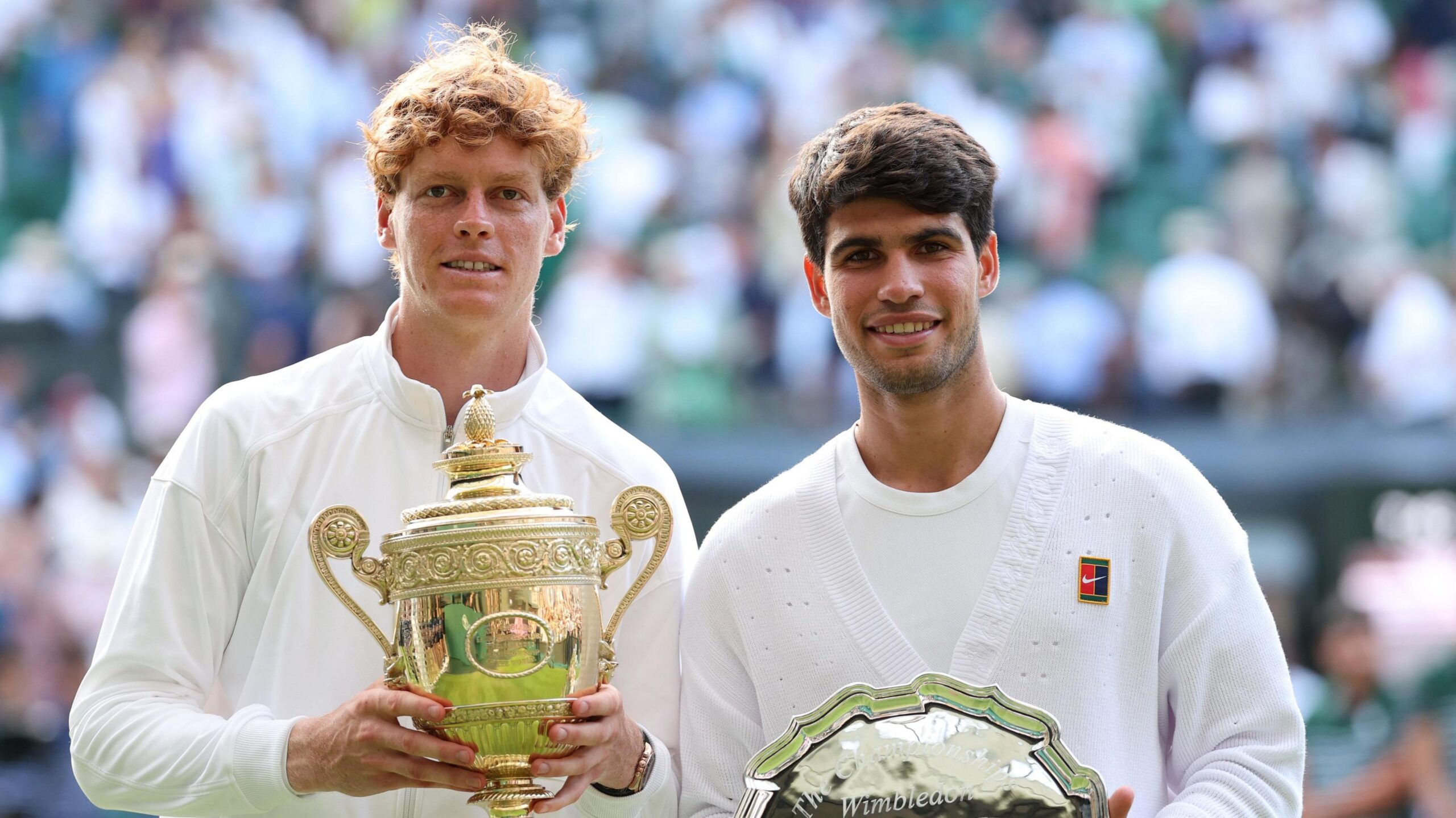 Getty Images
Getty ImagesWhy are players speaking out publicly now?
Dialogue between the group of players – who are represented by former WTA chief Larry Scott – and the Grand Slam powerbrokers began earlier this year.
In March, the players signed a letter sent to the four majors asking for a meeting. It came shortly after the Professional Tennis Players’ Association (PTPA) launched legal action against tennis’ governing bodies, citing “anti-competitive practices and a blatant disregard for player welfare”.
Sabalenka was among six stars who met with leaders from all four Grand Slams at this year’s French Open – joined by Jannik Sinner, Alex de Minaur, Casper Ruud, Coco Gauff and Madison Keys, as well as group representatives – to discuss the concerns.
That was followed up by individual meetings with each Slam at Wimbledon, where women’s semi-finalist Belinda Bencic and men’s world number three Alexander Zverev attended on behalf of the players.
“Those talks were constructive and we followed that up with proposals to how our three requests could be resolved,” Bencic told BBC Sport.
The players’ group sent out letters to all four Grand Slams individually to outline their proposals.
Replies were received from each of the tournaments, with Wimbledon advising they would consider the suggestions.
According to one source, the players are “infuriated” and feel the Grand Slams are being dismissive of their concerns.
“It has been disappointing for us with the responses that we received on those proposals that addressed the three key topics that we are actively seeking improvements on,” Bencic added.
As a result, they have decided to turn up the heat by speaking out publicly and warning they are willing to take further action, although the nature of what that might be has not yet been discussed.
What else do the Grand Slams say?
In their discussions with the players, the Grand Slams have been keen to underline how much they contribute to their careers in terms of remuneration, benefits and status.
Prize money has increased at all four majors over the past few years.
Wimbledon, for example, offered £53.55m this year – more than double the amount in 2014.
There has also been greater distribution throughout the draws, with Wimbledon increasing first-round prize money by 128% over the past decade and 309% in qualifying, as well more for those competing in the doubles and wheelchair events.
“Our position continues to be that we are always open to having constructive discussions to achieve the best possible outcome for the future success of our sport and for the benefit of our players and fans,” the All England Club told BBC Sport.
“We have been in regular dialogue with the players and their representatives to hear their feedback and these conversations will continue.”
BBC Sport has also approached the Australian Open, the French Open and the US Open for comment.

